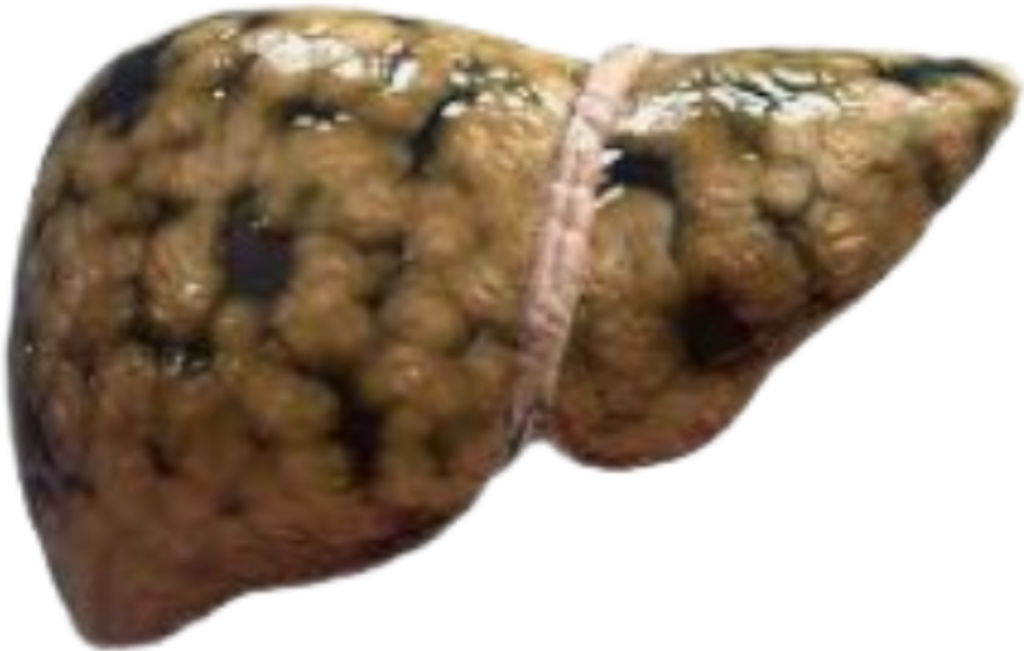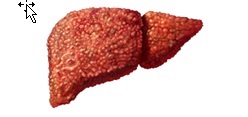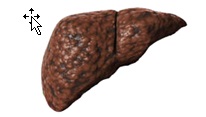Liver Problems
The liver can suffer from a number of problems, such as:
- Alcohol
- Fatty Liver
- Alcoholic Hepatitis
- Cirrhosis


Ever
wondered about the impact of alcohol on your liver? It’s common knowledge that
alcohol and the liver aren’t the best of friends. Alcohol, upon reaching the
liver, generates a toxic enzyme called acetaldehyde, capable of harming liver
cells and causing lasting scarring. The liver can only process a limited amount
of alcohol at any given time. If you exceed this capacity by drinking too
quickly or excessively, your liver cells struggle to cope.
Beyond the
immediate effects, alcohol acts as a diuretic, leading to dehydration.
Consequently, your liver expends extra effort searching for water in other
parts of your body. This dehydration contributes to the notorious hangover
experienced the following day.
Persistently
consuming alcohol may escalate to more severe liver conditions, progressing
from Fatty Liver to conditions like Alcoholic Hepatitis or Cirrhosis. It’s a
reminder of the critical role our liver plays and the consequences of exceeding
its capacity to process alcohol.
Alcoholic Fatty Liver is an early consequence, and potentially reversible, of excessive alcohol
consumption—whether in moderate or large amounts, even for a brief period. Risk factors for fatty liver disease encompass being overweight, obesity, diabetes, and elevated triglyceride levels.
Fatty liver
disease, characterized by the accumulation of excess fat in liver cells
(steatosis), poses a significant risk. Continuing to drink alcohol with a fatty
liver significantly heightens the likelihood of progressing to conditions like
Alcoholic Hepatitis or Cirrhosis. It’s important to note that fatty liver
disease can also manifest in individuals who abstain from alcohol. Factors such
as poor diet, obesity, lack of exercise, and conditions like high cholesterol
or diabetes can contribute to its development. Combining excessive alcohol
consumption with being overweight further amplifies the risk of liver damage.
Fatty liver can affect anyone who consumes alcohol, regardless of age or race.

Alcoholic Hepatitis arises from inflammation of the liver and is closely linked to
prolonged and excessive alcohol consumption. If heavy alcohol use persists,
Alcoholic Hepatitis typically endures and advances to Cirrhosis. This condition
leads to swelling and tenderness in the liver, emphasizing the critical need to
cease alcohol consumption and prioritize proper nutrition hepatitis C.
The prognosis for individuals with
alcoholic hepatitis is significantly influenced by factors such as the presence
of established cirrhosis and whether they continue to engage in heavy drinking.
Severe cases of Alcoholic Hepatitis pose substantial health risks, including
the potential for life-threatening complications and death. Hence, addressing
alcohol use and ensuring optimal care are crucial for managing this condition.

Cirrhosis Read the full fact sheet manifests when liver cells undergo
severe damage, leading to chronic inflammation and the replacement of these
cells with scar tissue. The chronic inflammation arises from conditions such as
Alcohol Hepatitis, Fatty Liver Disease, continual use of alcohol, drugs, or
harmful substances.
The presence of scar tissue disrupts the
normal flow of blood and fluids through the liver. This impaired circulation
adversely impacts liver cells, causing the liver to lose its proper
functionality and adopt a lumpy and hardened texture. Continuing alcohol
consumption during this stage further exacerbates liver damage, significantly
elevating the risk of liver cancer or death.
Individuals with Cirrhosis often
experience symptoms such as fatigue, anorexia, weight loss, and muscle
depletion. Moreover, Cirrhosis can evolve into various other serious and
life-threatening diseases and syndromes, emphasizing the critical importance of
addressing the underlying causes and adopting a proactive approach to liver
health.
